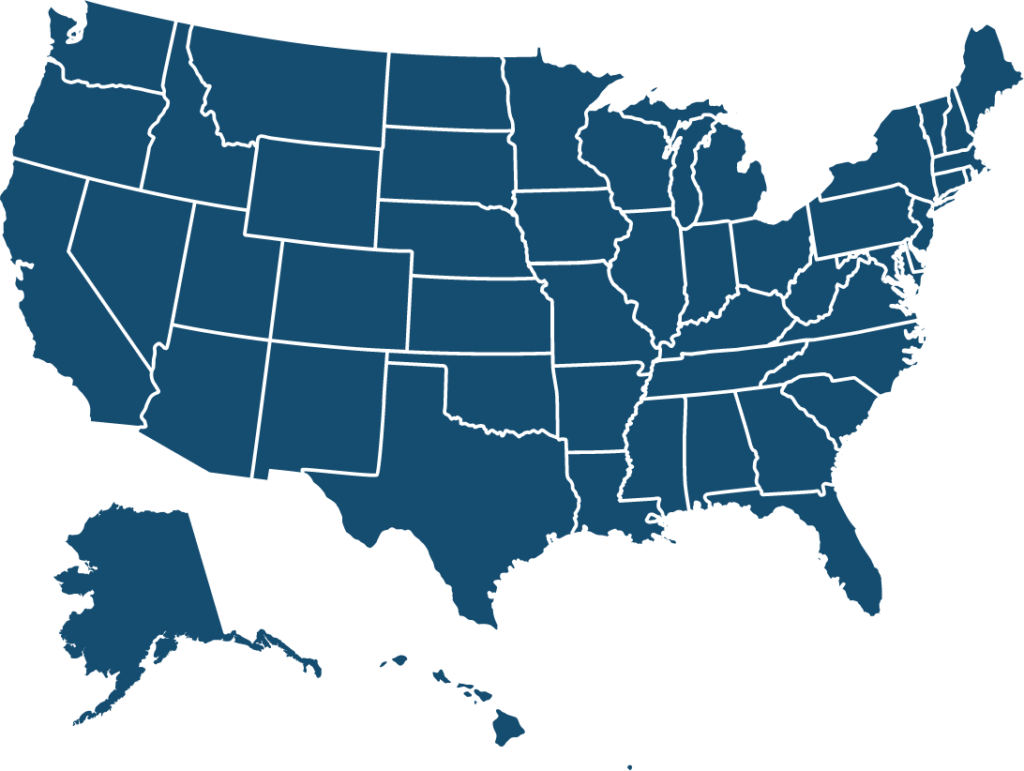Project Sites
The project sites all tackled complex challenges such as community violence and lack of access to mental and health and substance use treatment. The solutions to these types of issues required more than a single program within one agency; they required collaboration across a variety of justice partners to ensure system-level change. Through this initiative, courts, county leaders, justice system partners, and community-based organizations in these nine sites came together to focus their collective efforts on a single set of goals and measure their progress in the same way to improve lives of a community’s most vulnerable residents.

Improving Behavioral Health, Reducing Stigma
Criminal justice and behavioral health leaders in Albemarle County and the City of Charlottesville are establishing a regional criminal justice strategic plan. The city-county team seeks to improve its jail-to-community transition and reentry services, expand alternatives to incarceration such as diversion, and reduce the stigma associated with being justice-involved or having a substance use or mental health disorder. As part of this effort, the team will support additional community-based services and improve community members’ access to appropriate mental health and substance abuse services.
To learn more, watch the video here.
Improving Services for Youth and Formalizing Criminal Justice Coordination
The Berrien County team is developing a plan to enhance access to services for youth as part of a new juvenile justice complex in the county. Specific service areas include establishing an early intervention program to reduce contact with the juvenile justice system, developing comprehensive wrap-around services for youth and families, and implementing appropriate diversion programs. The Berrien County team will work to build collaborative relationships between county, court, and justice partners to develop a vision for positive community change.
To learn more, watch the video here.
Increasing Access to Services and Improving Data Sharing and Analysis
The Cambria County Criminal Justice Advisory Board is examining opportunities for data collection to improve information sharing between its justice system, public safety agencies, and community-based treatment providers. Specifically, the team is exploring strategies to implement and increase access to recovery housing services, reentry programming, court diversion programs, trauma-informed practices, and trauma-focused services.
Aligning Objectives and Resources to Improve Outcomes for Individuals with Mental Health and Substance Use Disorders
The Gallatin County team is establishing a data-driven road map for a systematic approach to supporting individuals with mental health and substance use disorders in their community. The team is building upon strong existing partnerships and knowledge among behavioral health stakeholders to prioritize strategies and solutions that may include ideas such as improving access to treatment courts, developing mobile crisis services, and supporting reentry from jail.
To learn more, watch the video here.
Increasing Access to Services and Collecting and Sharing Data
The Lake County team is improving collaboration between county and court leaders and community stakeholders by developing and implementing a community justice plan. Local leaders are examining opportunities to increase access to and quality justice and community-based services and improve data collection and sharing practices by and between justice-related agencies to inform effective policymaking. The community’s new action plan will include strategies to reduce crime and address other court-based measures to promote community wellness and reduce associated justice costs.
Bridging the Gap Between Justice and Behavioral Health Systems
The Mesa County team is assessing needs/gaps in policy and practice and identifying priority areas for collaboration and improvement within the county’s criminal justice and behavioral health systems. The team is focusing on areas such as reducing the number of individuals with mental health and substance use disorders in jail, reducing the county’s reliance on incarceration, and enhancing community trust. The team plans to engage community and justice stakeholders by administering surveys, hosting focus groups, and building upon its existing peer network to gather data and feedback.
To learn more, watch the video here.
Bridging the Gap Between Mental Health and the Criminal Justice System
Navajo County’s Criminal Justice Coordinating Council (CJCC) is establishing effective collaboration between county, court and justice partners, and community-based organizations to improve the lives of the community’s most vulnerable residents. Specifically, the project team is developing an action plan to bridge the gap between community behavioral health providers and the criminal justice system to better address the needs of people with mental health disorders. The planning team is also examining opportunities to expand law enforcement and court diversion programs and develop and implement policies and procedures that will support communication and coordination across CJCC member agencies and community stakeholders.
To learn more, watch the video here.
Improving Aftercare and Reentry
The Potter County team is establishing a data-driven road map that takes a systematic approach to criminal justice and prevention activities. The goal is to unify existing county and justice-related efforts and enhance services and programs to improve outcomes for people involved in the justice system. The planning team will examine opportunities to build an aftercare program that assists people in jail with reentry into the community to reduce recidivism and improve individual outcomes.
Enhancing Diversion Opportunities for Individuals with Mental Health and Substance Use Disorders
The Rockdale County team is exploring strategies to address jail capacity issues, enhance cross-system coordination, and improve partners’ data collection and information sharing. The team will identify strategies to ensure a continuum of care for individuals with mental health and substance use disorders involved in the criminal justice system and develop a plan to ensure long-term sustainability.
To learn more, watch the video here.